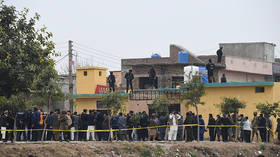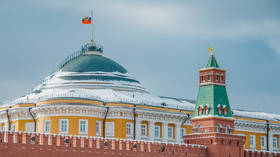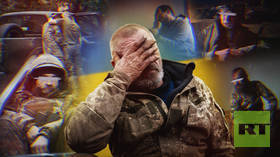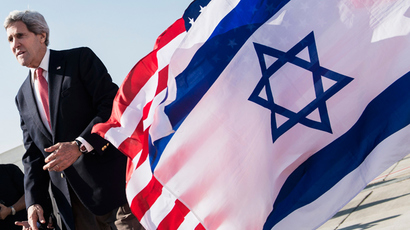Ultra-Orthodox Jews outraged as Israel passes military conscription law
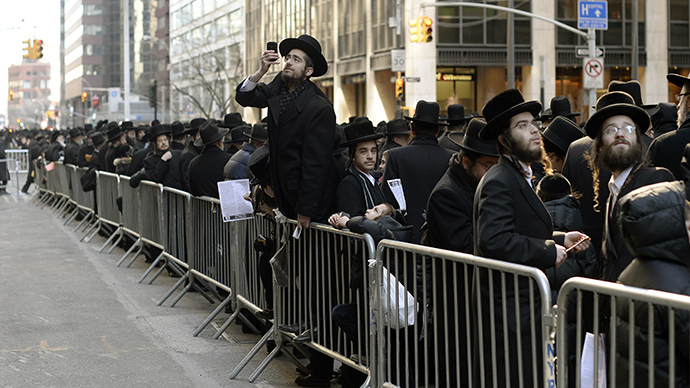
Despite protests from Jewish opposition parties and diaspora groups, Israeli MPs on Wednesday overwhelmingly passed a law forcing ultra-Orthodox Jews to join the military, perform civilian service or face prosecution.
The bill was voted through the 120-seat Knesset by a wide margin
of 65 to 1, with the main opposition parties boycotting the vote.
The single dissenting vote was cast by far-right Jewish Home MP
Yoni Chetboun.
The law would mean a major change in Israeli society, where
ultra-Orthodox Jews have traditionally been exempt from military
service, instead serving society through prayer and study,
helping to protect Jewish culture. But in recent years, calls for
the ultra-Orthodox to contribute more to the country’s defense
and economy have grown dramatically.
Science and Technology Minister Yaakov Peri stated after the
bill’s passage: “For the first time, an issue at the heart of
the conflict of Israeli society will be solved. Dramatic change
will come.”
However, the bill has given rise to a great deal of controversy.
“I oppose the draft law,” Chetboun, who lost his
position on the Foreign Affairs and Defense Committee, said in a
statement. “It is ill-conceived, and comes at the peak of a
wave of anti-religious legislation that seeks to dilute the
Jewish character of the State of Israel.”
Opposition parties had earlier said they would not participate in
the vote, which has sparked a wave of condemnation from
ultra-Orthodox Jews, who make up about 10 percent of Israel's 8
million citizens.
The law, which will go into force in 2017, requires that
ultra-Orthodox males must either join the army or perform
civilian service, with a special clause that punishes draft
dodgers with possible imprisonment.
Israel has long had a compulsory draft, with men serving in the
military for three years and women two.

Earlier this month, hundreds of thousands of ultra-Orthodox Jews
took to the streets of Jerusalem to speak out and pray against
the impending legislation.
The protests also took place as far afield as New York, where on
Sunday an estimated 50,000 Satmar Jews assembled along 10 blocks
of Manhattan, with men and women in separate groups as is the
tradition in religious ceremonies.
"The problem is, anyone who goes into the Israeli military
becomes secular, and that would erase our whole tradition,"
Yitz Farkas, a member of the Brooklyn-based True Torah Jews
organization, told AP.
"We're all united against military service for religious men
in Israel because it doesn't allow for religious learning,"
said Peggy Blier, an interior designer from Brooklyn. "The
Israeli government is looking to destroy religious society and
make the country into a secular melting pot.”
Shaked Law just passed. Now we will roll up our sleeves and connect our Haredi brothers to the Israeli economy... http://t.co/61ILypWCt8
— Naftali Bennett (@Naftali_Bennett) March 12, 2014
Since 1948, the year of Israel’s founding, adherents of Haredi
Judaism, who reject many aspects of modern secular culture,
including viewing films and television, were exempted from
compulsory military service to pursue their stringent religious
studies. Increasingly, however, many secular Israelis said the
exemption for a relatively large number of Jews was unfair.
The draft law is regarded by several Israelis as rectifying a
perceived historic injustice of exemption, given to the
ultra-Orthodox community in 1948, when Israel was established as
a nation. However, they were at that point only a small
proportion of the population.
However, a high birth rate has since expanded their role in
society, making them the fastest-growing group in the country.
"This is a historic, important bill," MK Ayelet Shaked
(Bayit Yehudi), who led the parliamentary committee to prepare
the legislation, declared as quoted by the Jerusalem Post.
"For 65 years there was an exemption for all yeshiva students
and the change the coalition made is proportionate and gradual
and correct."
Shaked added that she "believes in the Haredi public and that it
will reach the [conscription] goals the government set.
"I imagine this law will reach the High Court by tomorrow. I
hope the judges will read the protocols of the committee meetings
and see that even if the law is not equal it has a worthy goal,
which is why I think it will stand the test of the High
Court," she added.
Immediately after the new law passed, the Movement for Quality
Government petitioned the High Court against it.




